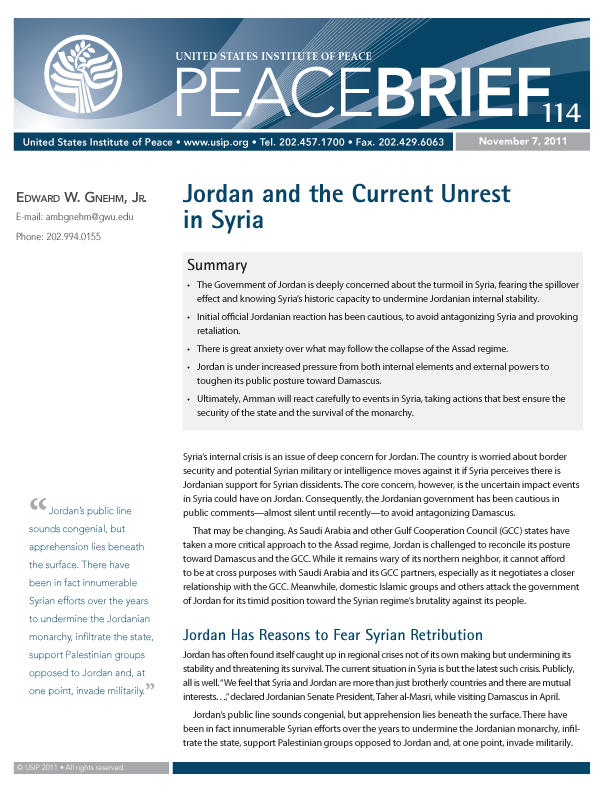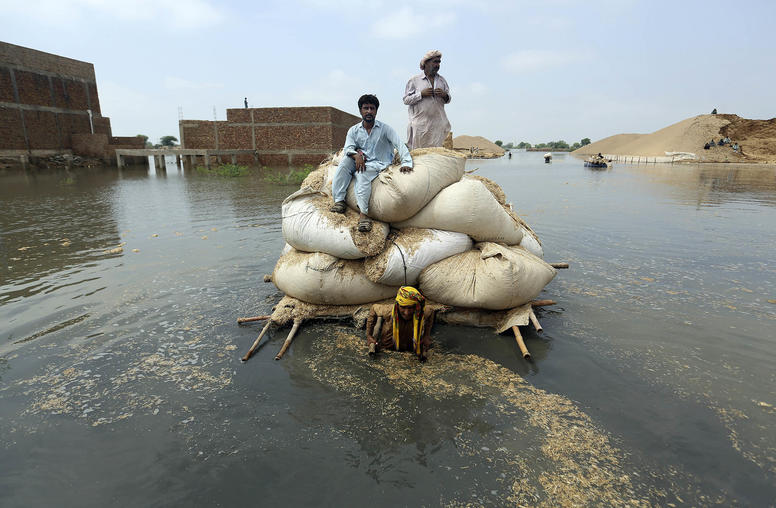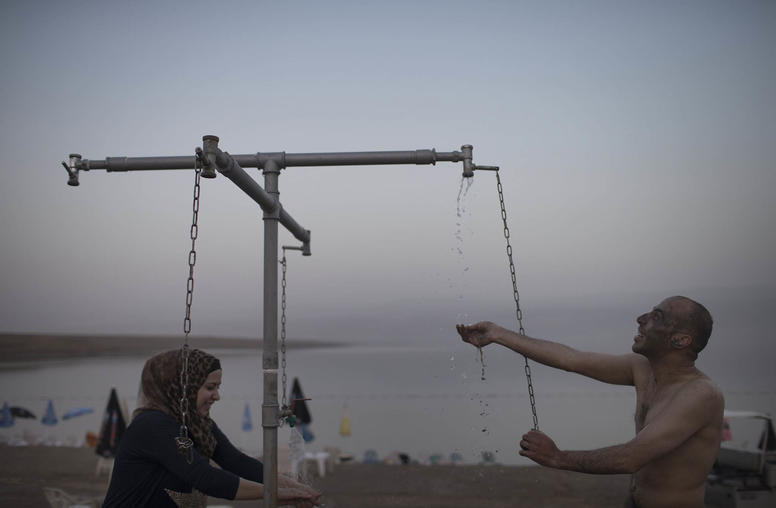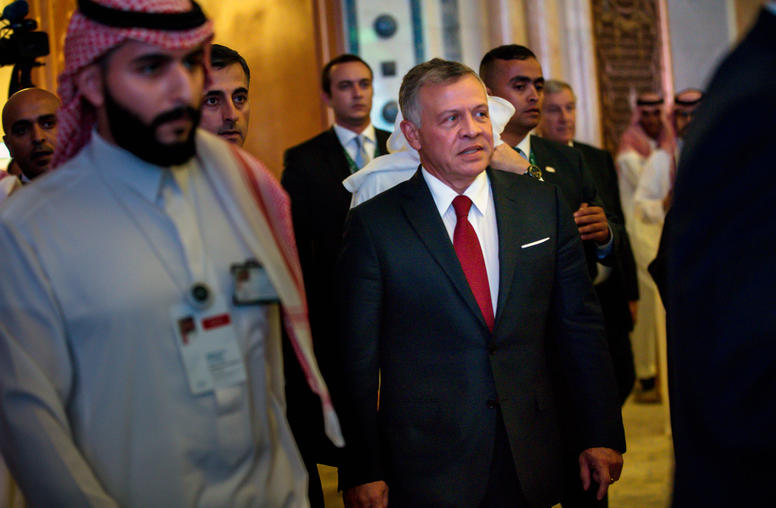Jordan and the Current Unrest in Syria
The Government of Jordan is deeply concerned about the turmoil in Syria, fearing the spillover effect and knowing Syria’s historic capacity to undermine Jordanian internal stability. Edward Gnehm, the Kuwait Professor of Gulf and Arabian Affairs at the George Washington University, looks at the impact the turmoil in Syria could have on Jordan.

Summary
- The Government of Jordan is deeply concerned about the turmoil in Syria, fearing the spillover effect and knowing Syria’s historic capacity to undermine Jordanian internal stability.
- Initial official Jordanian reaction has been cautious, to avoid antagonizing Syria and provoking retaliation.
- There is great anxiety over what may follow the collapse of the Assad regime.
- Jordan is under increased pressure from both internal elements and external powers to toughen its public posture toward Damascus.
- Ultimately, Amman will react carefully to events in Syria, taking actions that best ensure the security of the state and the survival of the monarchy.
About this Brief
This brief is part of a series examining the regional dimensions of Syria’s popular uprising. The Institute invited leading experts from the U.S. and the Middle East to identify key vectors of influence that Syria’s neighbors are bringing to bear on the conflict, to forecast how the situation there will affect the regional balance of power and to examine how the opposition and the Syrian regime are responding to these regional dynamics. Through its work, the Institute aims to provide analysis and tools for on-the-ground conflict management in support of political transitions across the Arab world. The series was edited by USIP’s Steven Heydemann, senior adviser for Middle East Initiatives, and Scott Lasensky, a senior program officer. Edward Gnehm is the Kuwait Professor of Gulf and Arabian Affairs at the George Washington University.
Explore Further
- Turmoil in Syria: Reshaping the Middle East?
USIP publishes a series of briefs on how the Syrian uprising is affecting the regional neighborhood



